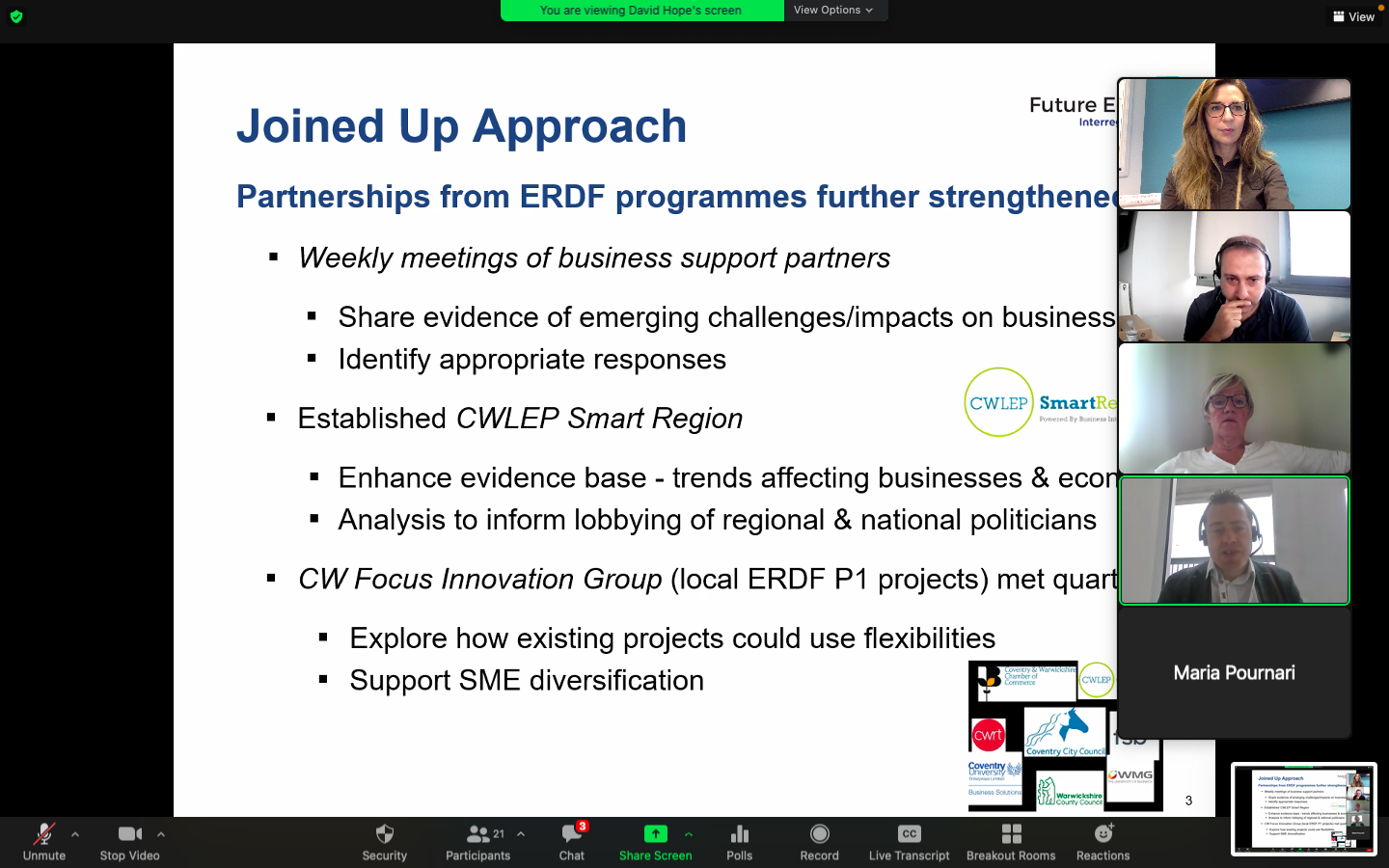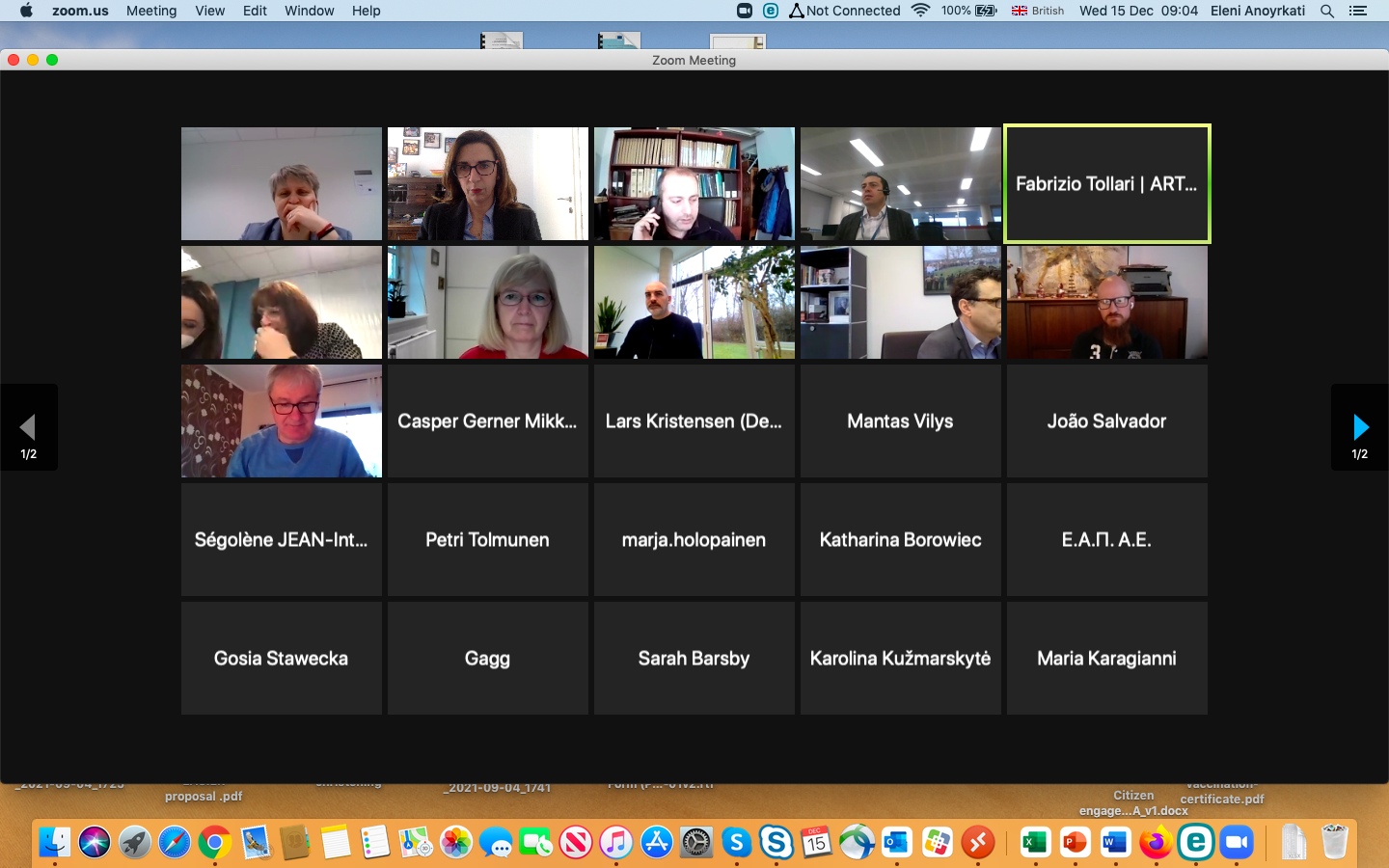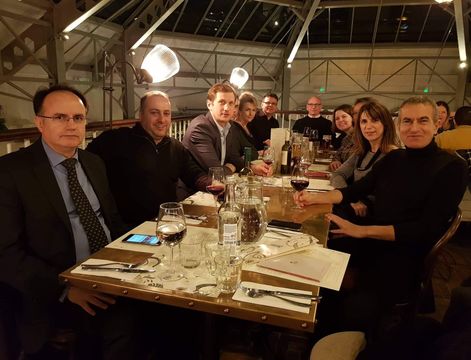
COVID19 responses to E-com
The new report on policy responses to COVID19 is now released!
It is estimated that in 2020 B2B e-commerce in EU will be twice as large as B2C in terms of sales which proves a huge unreleased potential for EU SMEs. There is a risk of being surpassed by frontrunners as most SMEs have not even taken the first step in this direction. Succeeding with B2B e-commerce requires a huge turn-around within the company's internal processes as this may scale up the turnover dramatically. Digitising and automating the internal processes of the SME is key to manage and keep up with the upscaling requirement of global e-commerce whilst ensuring economic profit.
Creating a Digital Single Market (DSM) is one of the top ten priorities of the European Commission. The overall objective is to bring down barriers, regulatory or otherwise unlock online opportunities in Europe to create one borderless market with harmonized legislation and rules for the benefit of businesses throughout Europe. This is stated by the EC in the 6 May 2015 DSM strategy aiming to to remove key differences between the online and offline worlds and to break down barriers to cross-border online activity and thereby improve B2B e-commerce.
Future Ecom addresses policy makers and business support agencies across EU who need to fully understand the key barriers for SMEs to exploit and benefit from a global internet driven market place in general and enhance digitisation and automation in particular. This is done by the exchange of experiences and good practices across 8 EU regions in Future Ecom.
The main output will be the elaboration of an Action Plan per region, based on the inter-regional exchanges. The knowledge and capacity gained by the partners will enable the design of new initiatives and/or business support programmes which compare with best practice. At the end of the project, the monitoring of the implemented initiatives will improve the impact from the regional policy instruments addressed by the Future Ecom partners and the results will be disseminated across EU.
€1,601,234.00
SME competitiveness
The SMEs in North Denmark Region are characterised by a traditional way of doing things such as a high degree of manual processes and face to face meetings with customers and suppliers nearby. Furthermore, the SMEs are challenged by a low degree of automisation, digitisation and international activities such as import/export and cooperation with foreigh suppliers.
According to the Regional Operational Programme for North Denmark Region, there is a specific focus on promoting and strengthening the competences and readiness for digitisation and globalisation by SMEs and entrepreneurs in the region.
The Managing Authorithy of North Denmark Region is specifically seeking to support the SMEs and start ups by offering regional support programmes that allow access to knowledge and external expertise among other things to help the SMEs automise, digitise and professionalise the value chains of the enterprises making them ready for growth and ekspansion.
As a result the Managing Authorithy expects the following impact from their Regional Operational Programme:
- Improved strategy- and business development
- Proces development and automation
- Globalisation and internationalisation of enterprises with increased focus on export.
Based in these objectives, the Managing Authority of North Denmark Region expects the following measures within 2020
- 2.200 new jobs
- 266 M EUR in revenues by the involved enterprises
The main objective of “Future Concept Lippe 2025” is to ensure the future viability of the district of Lippe. Based on a profound scientific research and a broad participation process the district of Lippe has identified global megatrends which will determine the future of this area. The “Zukunftskonzept Lippe 2025” is the answer to these challenges and it describes the common strategy for the next decade.
At the beginning of this year the district council of Lippe confirmed the “Zukunftskonzept” with ten key objectives, while “Digitization” ranked as the first and “Economy” as the second. This underlines the main importance of these two (connected) issues.
Digitization in SMEs is rather underdeveloped, only focussing on creating networks and transfer-platforms. The approaches named exemplary in the second key objective “Economy” are directed on infrastructure and areas, not focussing e.g. on support for digitising and automatising internal processes among companies.
Related to the exceptional importance of the two mentioned key objectives this shows the immense lack of intervention and concrete concepts for companies. Especially small and medium sized companies - forming the backbone of economy in this area - are the first who are confronted with the rising competition in their markets due to digitisation. Hereby the urgent need for an extended or rather focussed intervention becomes obvious and with it the need for an improvement of the “Zukunftskonzept Lippe 2025”.
The exploitation of the e-commerce opportunities for B2B transactions, is relevant to the Structural Funds Operational Programme 2014-2020 and more specifically with the thematic target 2 'Improvement of access to technologies and the related benefits'. This target is among other things aimed at improving the percentage of companies to benefit from todays technology. Dissemination and increased use of e-commerce is part of these benefits.
As of 2013 only 15% of the large companies and 8% of the SMEs offered e-commerce possibiities. Therefore there is a need to address and improve the policy instrument.
The policy instrument holds the implementation of e-business solutions for SMEs, including optimisation of business processes related to production and/or service provision and performance optimisation, (e.g. customer service, logistics, e-marketing, resource management, ordering, etc.) through the use of information technology in the context of data transmission networks (e.g. IRC development and implementation, aquisition of necessary software licenses and outsourced maintenance services, etc.)
The objective of the instrument is to support the capacity of SMEs to grow in regional, national and international markets and to increase their innovation and productivity.
The main features of this policy instrument are promoting business investments in R&I, developing links and synergies between SMEs, promoting investments in product and service development, technology transfer, eco-innovation, public service applications, networking, supporting technological and applied research, early product validation actions, advanced manufacturing capabilities and first production. In particular to support the capacity of SMEs to engage in regional, national and international markets and innovation processes;
Reasons why it should be improved: It is necessary to promote the exchange of good practices between regional authorities, universities, innovation research centers and the SMEs to allow to the SMEs to take full advantage of the numerous opportunities offered by new technologies and also to exploit the benefits of global B2B e-commerce in general and enhancing digitization and automatization of internal processes in particular. Furtnermore, it is necessary to promote the cooperation between regional authorities, business support actors and the SMEs to promote the competitiveness through the introduction of new business support programmes dealing with the barriers related to B2B e-commerce.
Action 3 of the Emilia-Romagna ERDF Regional Operational Programme 2014-20 aims at promoting the implementation of advanced ICT tools within strategic aspects of local SMEs. Furthermore, the aim is to support commercialisation and distribution as well as designing and establishing manufacturing networks. The action supports corporate initiatives for implementing new processes or product innovations as well as innovative initiatives within management or changes in the organisation as a whole.
Implementation and monitoring of the action could be improved as there is a need to reinforce specific measures when new ICT methods and tools are being implemented in SMEs. Furthermore, there is a specific need to prove the impact by enhancing the most relevant and well known regional supply chains through specific customized products or processes.
The Midlands is leader in innovation in ICT, hosting an important cluster of games development businesses and the Serious Games Institute, which is a global leader in applying games technology to business and health appications. The OP has, however, identified that outside of this field and Advanced Manufacturing the region is below average in innovation. One of the contributing factors is that only a small proportion of SMEs are using ICT in areas such as e-commerce, open innovation and market research.
Interventions proposed under Priority 3 include rolling out better broadband and resolving below average connectivity. The actions that will be supported include better ICT skills and improving the uptake of digital technologies, focusing particularly on expanding business capability through B2B e-commerce.
Sustainable growth and jobs 2014 - 2020 is Finland's structural funds programme' (CCI 2014 FI 116M2OP001). The addressed policy instrument has 5 priority axes and 13 specific objectives. FuturE.com focuses on Priority axis 1 Competiveness of SMEs (ERDF) and its 2 specific objectives of generating new businesses and promoting growth and internationalisation of enterprises. These objectives are imperative for Kymenlaakso region to become more competitive and access new markets which lead to sustainable growth and jobs in fierce global competition.
In Kymenlaakso, there is a need for more effective and improved policy instruments; In recent years severe structural changes have taken place in Southern Finland and particularly in Kymenlaakso region where the economic structure is highly centralised (traditional pulp and paper industry) there is a high vulnerability to structural changes. Most enterprises in Finland are micro-enterprises who has a low degree of growth and slow expansion abroad. Compared to many other EU countries, Finland has few SMEs that have expanded their operations abroad. Economic success requires growth companies that are successful in turning innovative ideas into commercial products and services for the international markets.
FuturE.com is seen as a way to improve the policy instrument addressed in order to support more enterprises to raise their innovation rate and their use of ICT en thereby entering new markets.

The new report on policy responses to COVID19 is now released!

Future-E inter-regional workshop: E-commerce: the path forward during the ‘new normal’

The purpose of the workshop is to present and discuss the COVID19 responses of the regions to digitilisation of SMEs
In South-East Finland in Kymenlaakso region a joint project funded by ERDF is being planned aspired by the good practices of Future-Ecom

The economic development agency of the district of Lippe and the city of Detmold have developed a practice-oriented and compact series of events for SMEs

“Ecommerce the path towards the future”
Key lessons learnt and findings from the Future-E project, presenting Future-Ecom project actions and findings.

The final conference of Future E-com is taking place on the 15th of December , 10.00 CET , online
The Interreg Europe Secretariat is currently looking for one Project Finance Officer (18 months contract).

The first project meeting of Phase II took place today

Future Ecom Kick-off meeting and first workshop 15-16th January 2019.